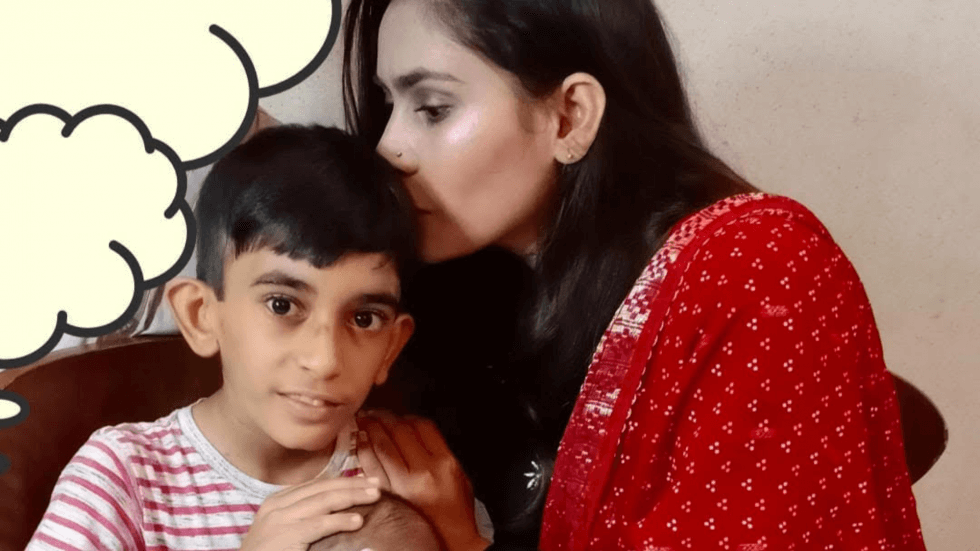
Farzana Naveed, Azan’s mother, bravely recounts her family’s journey with their son’s rare condition, Wiskott-Aldrich Syndrome, and the promising role that cord blood stem cell therapy plays in shaping a brighter future.
Unraveling the Complexity of Wiskott-Aldrich Syndrome
Wiskott-Aldrich Syndrome (WAS) encompasses a cluster of rare, severe disorders affecting approximately 4 individuals per million, predominantly males. WAS disrupts the function of white blood cells, leading to diminished immunity and a substantial decrease in platelet size and count (microthrombocytopenia). Individuals with this condition experience frequent episodes of bleeding, recurrent infections, and eczema, and they face increased risks of autoimmunity, lymphoma, and leukemia.
Rooted in mutations or defects in the WAS gene, responsible for producing the Wiskott‐Aldrich Syndrome Protein (WASp), the severity of WAS varies widely. Severe cases may manifest shortly after birth or emerge within the first year of life.
Being an inherited condition, WAS follows an X‐linked recessive pattern, passed down through generations. Carrier mothers have a 50/50 chance of conceiving a son with WAS.
Unveiling Azan’s Diagnosis
Azan began exhibiting symptoms at just 7 months old, including bloody stools, bumps all over his body, frequent infections, and nasal bleeding episodes. Initially diagnosed with Immune thrombocytopenia (ITP), a platelet disorder, Azan’s condition showed no improvement over three years.
Prompted by the lack of progress and resources in Pakistan, genetic testing was recommended by his Haematologist, Dr. Sadaf Altaf. Sending blood samples to the U.S. revealed Azan’s Wiskott-Aldrich Syndrome diagnosis.
Daily Struggles of Navigating Life with a Rare Disease
Farzana shares the ongoing challenges of raising a child with a rare disease like Azan’s. The constant uncertainty disrupts their routine and work, with the family facing difficulties even at home. Azan’s inability to attend school adds emotional strain, and his treatment has become more complex, as platelet transfusions are no longer viable due to anaphylaxis.
Unlocking the Potential of Cord Blood Stem Cell Therapy
With a bone marrow transplant (BMT) as the recommended permanent cure for WAS, finding a suitable donor became crucial for Azan’s treatment. However, no match was found, and Azan’s condition worsened. In the search for hope, Farzana discovered the Wiskott-Aldrich Foundation, founded by Dr. Sumathi Lyengar, offering support and information on clinical trials utilizing cord blood stem cells.
Cord blood stem cell therapy emerged as a viable option when a perfect bone marrow match was unavailable. Clinical trials in the U.S. and Europe showed promising results for Wiskott-Aldrich Syndrome, providing significant hope for Azan’s future.
Embracing Hope: Azan’s Path to a Transplant
In 2022, Farzana received the news of her pregnancy, presenting an opportunity to bank cord blood from a sibling for Azan’s potential transplant. Despite the unavailability of cord blood banking in Pakistan, Dr. Lyengar connected with Cells4Life, and they reached an agreement wherein Cells4Life would cover all expenses for shipping, processing, testing, and storage of the cord blood.
On May 22, 2023, Farzana welcomed a baby girl, and the cord blood from Azan’s sister was successfully collected and stored. Currently undergoing testing, it holds the promise of being a suitable match for Azan, offering a ray of hope in his journey towards a transformative stem cell transplant.
Farzana’s story reflects remarkable resilience and unwavering determination, highlighting the potential of stem cell therapy for patients like Azan and their families. Cells4Life is committed to raising awareness and supporting families affected by rare conditions such as Wiskott-Aldrich Syndrome through innovative research and advanced stem cell techniques.
Want to learn more about cord blood banking?
Click here to download a welcome pack or speak with one of our specialists at 04-3116613.
Source: https://cells4life.com/2023/10/wiskott-aldrich-syndrome-naveed-family-story/
